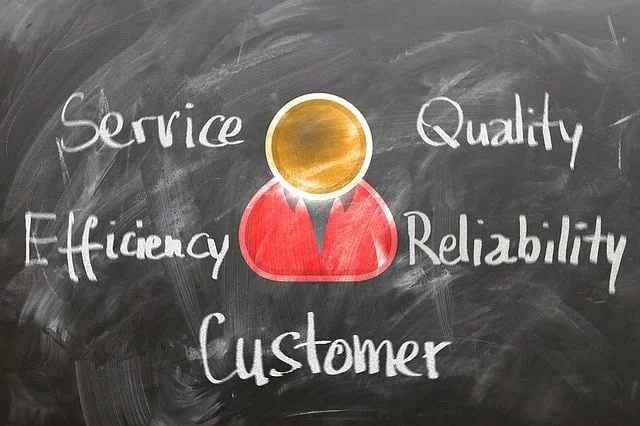The manufacturing industry heavily relies on enterprise resource planning (ERP) systems, which are responsible for driving remarkable enhancements in efficiency and productivity. These systems merge disparate business processes to facilitate a cohesive approach toward managing operations seamlessly.
Manufacturers can harness the power of ERP solutions as they foster resource optimization and decision-making improvements, thus increasing competitiveness levels across several fronts. This article discusses how ERPs transform the manufacturing industry, exploring their influence on diverse facets of production-related activities.

Streamlining Operations and Processes
By integrating various functions into a single platform, ERP systems simplify manufacturing operations and processes. Such integration enables seamless communication across departments like production, inventory management, procurement as well as sales.
For instance, employing robust manufacturing software that automates routine tasks and offers real-time data access options results in decreasing manual errors while enhancing operational efficiency levels. Thus, synchronized processing results in shorter lead times and better planning for production activities. These options ensure optimal use of resources, resulting in systematic functioning throughout the cycle, smooth operations, and efficient output control at every step.
Improving Inventory Control
For successful manufacturing, it is essential to manage inventory effectively, which can be achieved through the utilization of ERP systems. These software solutions offer real-time and precise insights into current stock levels for manufacturers, ensuring they maintain appropriate amounts at all times while also allowing better monitoring of raw materials, work-in-progress products as well as finished goods.
Sadly, numbers show that a mere 6% of businesses have complete visibility of their supply chain, which could severely impact their manufacturing process. With increased visibility enabled by ERP systems, businesses are able to avoid depletion or surplus situations, resulting in reduced carrying expenses alongside decreased wastage concerns.
Furthermore, when coupled with improved demand forecasting and procurement planning capabilities from these same systems, businesses benefit greatly in terms of cost savings due to optimized processes. Such options ultimately lead to greater efficiency overall within a business’ production operations.
Enhancing Quality Control
Manufacturing necessitates stringent quality control, a vital aspect that is significantly improved by ERP systems. Manufacturers benefit from ERP software as it enables them to implement and monitor rigorous quality control measures throughout the production cycle.
By capturing data at each stage of production and analyzing it thoroughly, ERP systems help identify defects early on. This real-time analysis provides manufacturers with timely corrective options while maintaining product consistency, concerning required standard qualities.
Additionally, to comply with specified industry regulations or standards more efficiently, an ERP system’s detailed recording capability helps maintain better documentation accuracy compared to traditional non-automated approaches used in manufacturing industries. Implementing this level of enhanced quality controls ensures heightened customer satisfaction levels apart from reduced rework costs for producing not-so-stellar-quality products.
Improving the Decision-Making Processes for Better Outcomes
Manufacturers can reap significant benefits from ERP systems as they provide valuable insights and analytics. By consolidating data from diverse functions, these systems offer a holistic perspective of the entire manufacturing operation, which assists in informed decision-making. This consolidated view facilitates trend analysis and performance evaluation, as well as enables managers to make rational decisions based on credible information.
Real-time reporting is facilitated by dashboards that allow quick assessment of key performance indicators so agile responses can be made towards changing market conditions or operational challenges. Accessing accurate data empowers decision-makers to optimize production schedules for delivering improved overall strategic planning.
Improving the Complex Management of Customer Relationships
The integration of customer relationship management functionalities with other business processes in ERP systems has brought about a revolutionary change in the manufacturing industry. This innovative approach enables manufacturers to gain an overall view of their customers’ interactions, preferences and history, which allows them to cater more effectively based on this data.
With comprehensive access to information regarding their clients, organizations can efficiently manage orders from start to fulfillment, thus ensuring that invoices are accurate and timely delivery is made possible. As such, enhanced ERP presents an opportunity for greater satisfaction from customers who could then easily become repeat buyers. At the same time, well-rounded ERP systems allow businesses to attain sustainable growth in the cutthroat manufacturing industry.

The Bottom Line
The manufacturing industry has been transformed by ERP systems, which have streamlined operations and improved inventory management, quality control, decision-making processes, and customer relationship management. These powerful tools provide manufacturers with the capabilities needed to optimize their operations while reducing costs and achieving greater efficiency levels.
With various functions integrated into an ERP system, manufacturers can operate more harmoniously as well as quickly respond to changing market conditions. Therefore, it is essential for businesses that want long-term success in today’s fast-paced environment to embrace these innovative solutions so they can remain competitive within the manufacturing industry.





